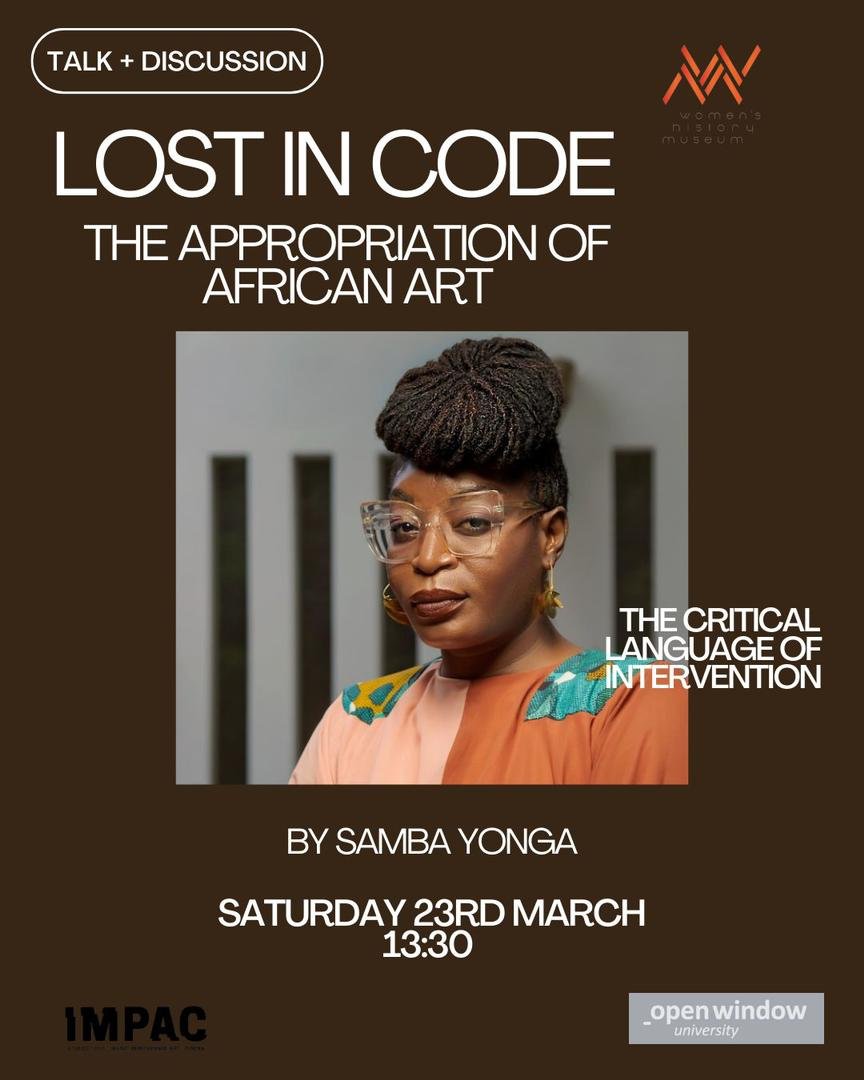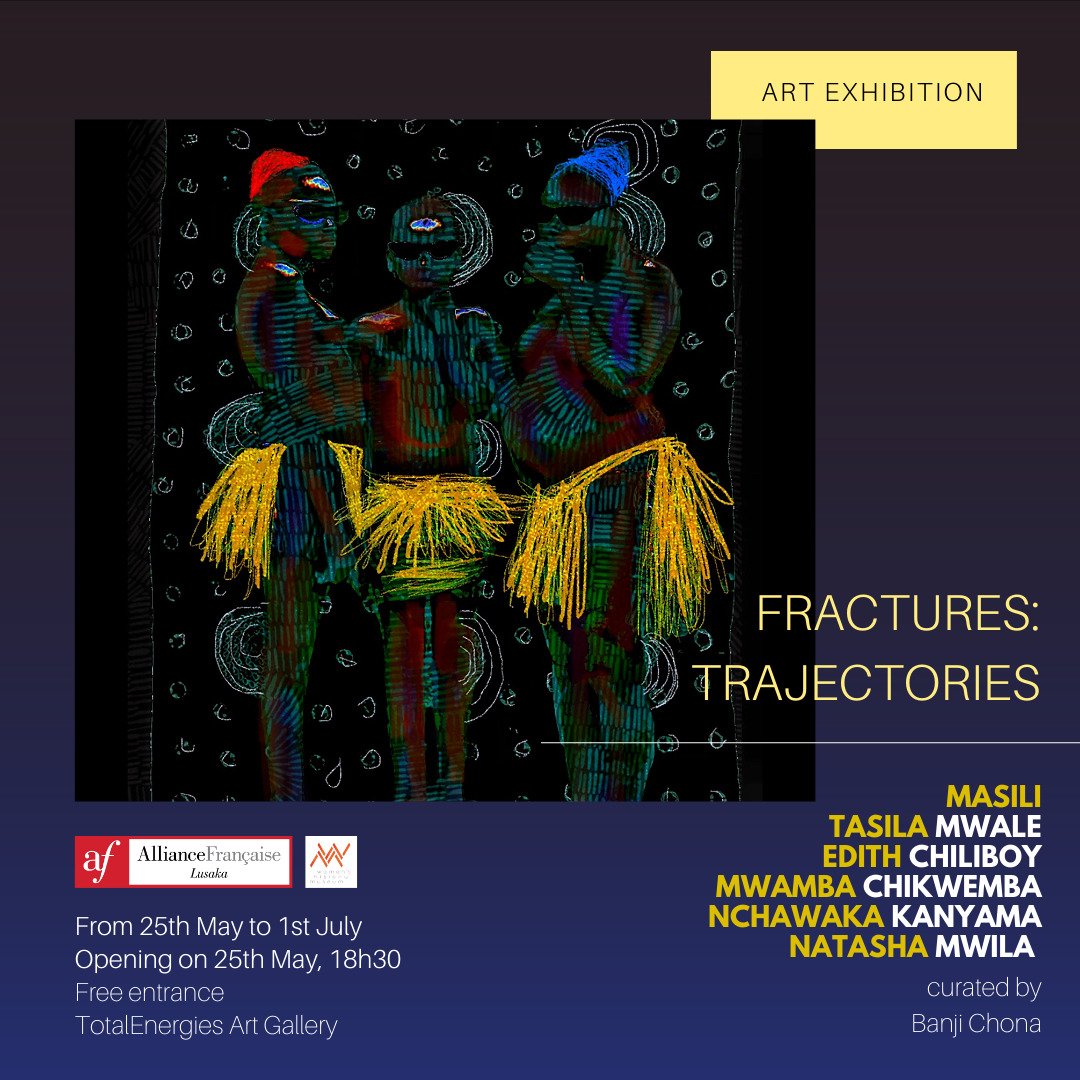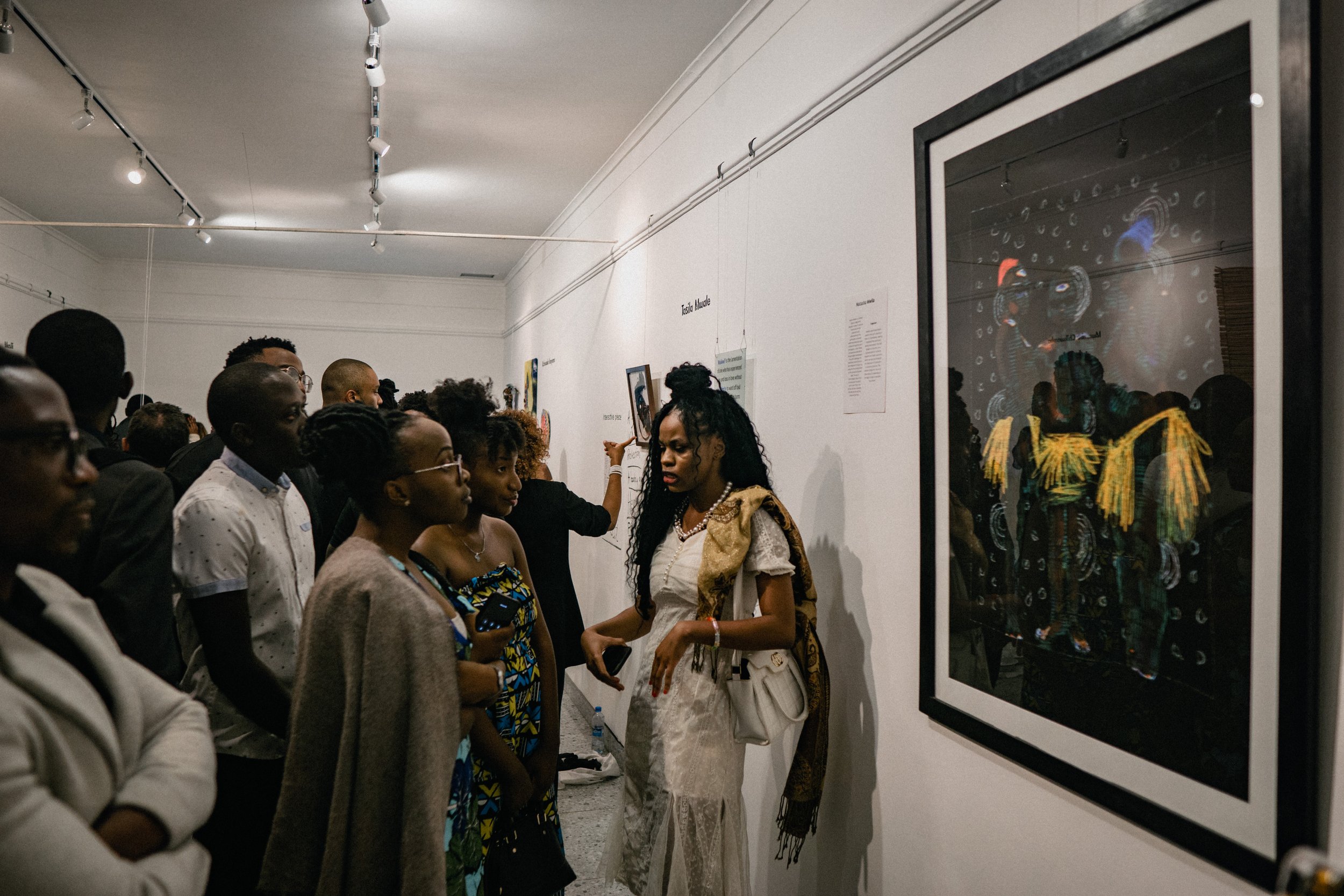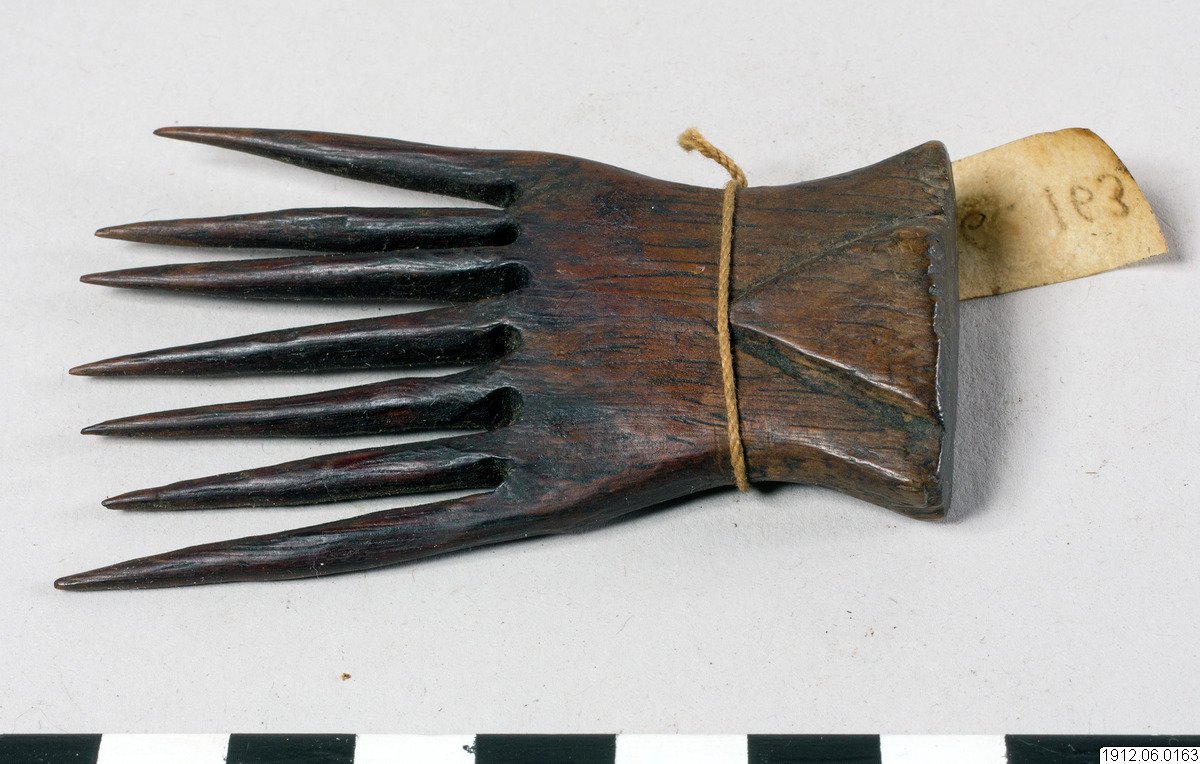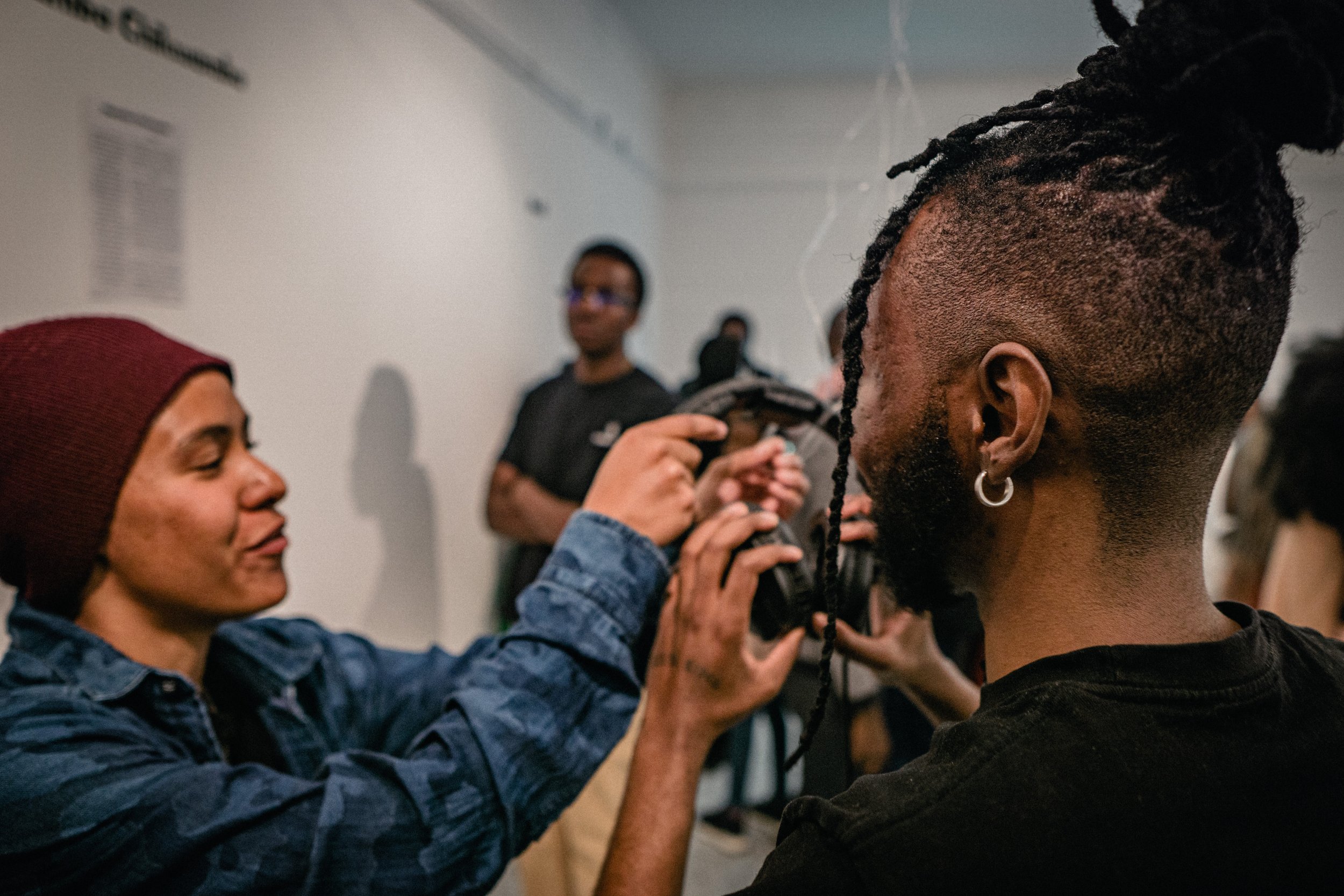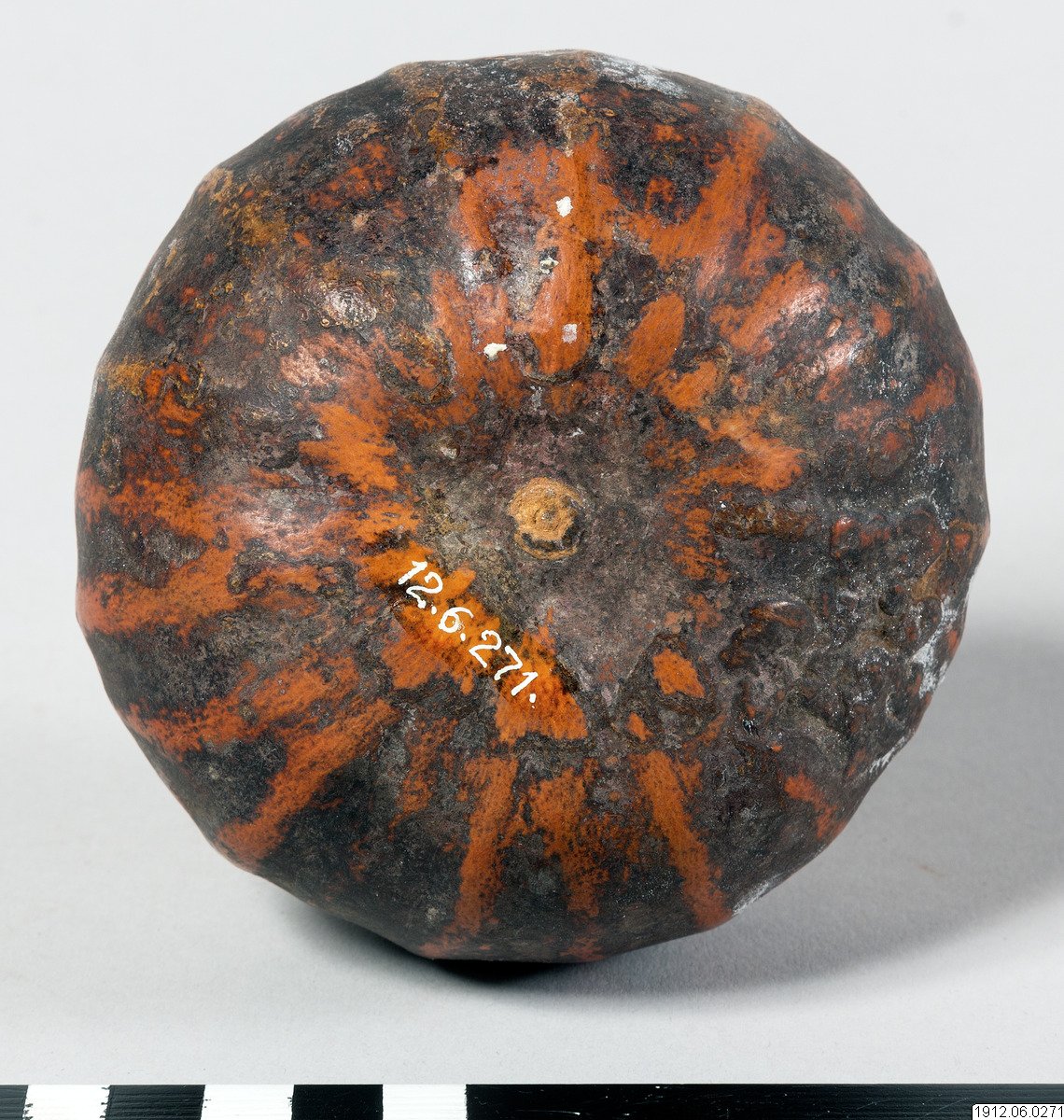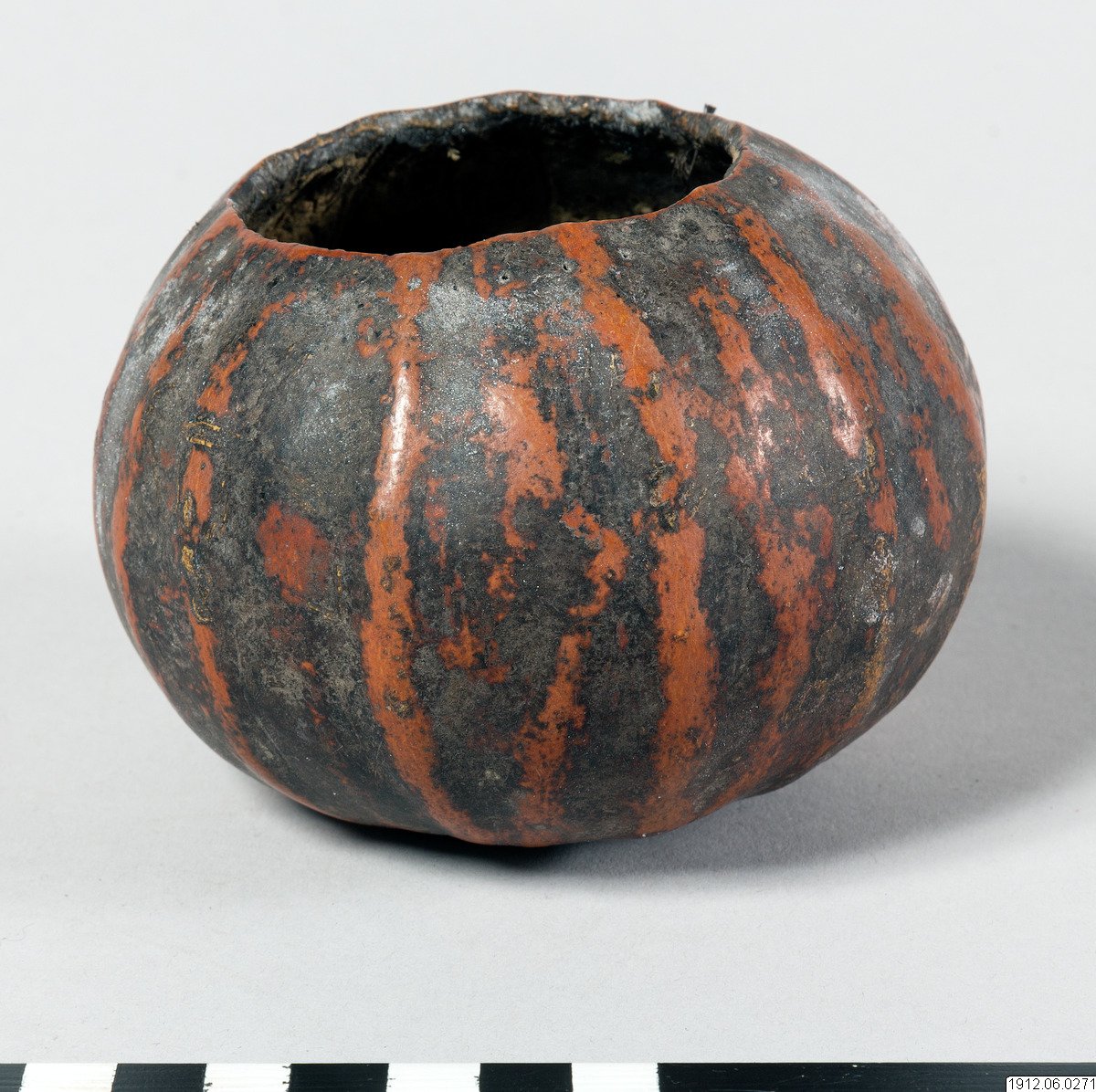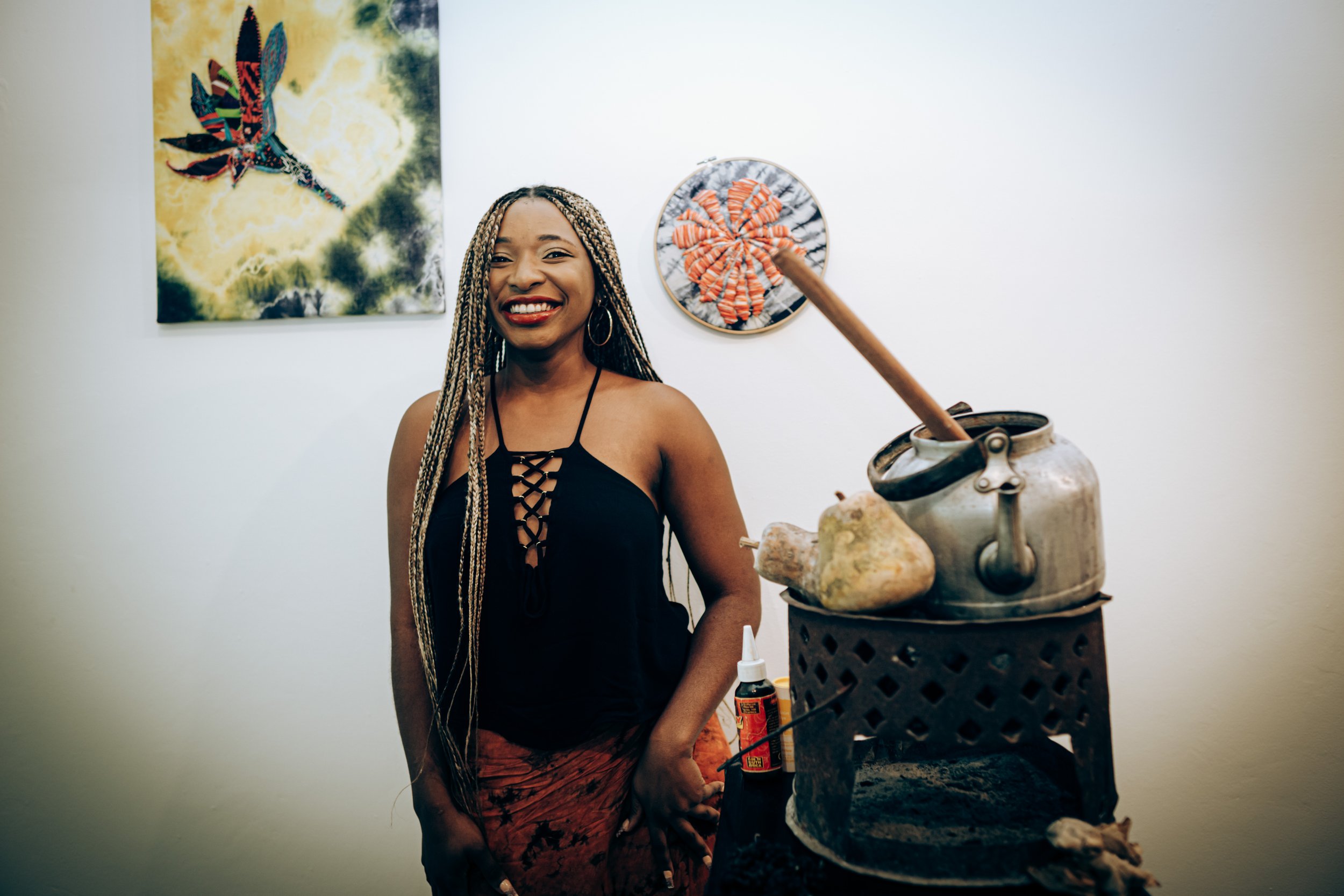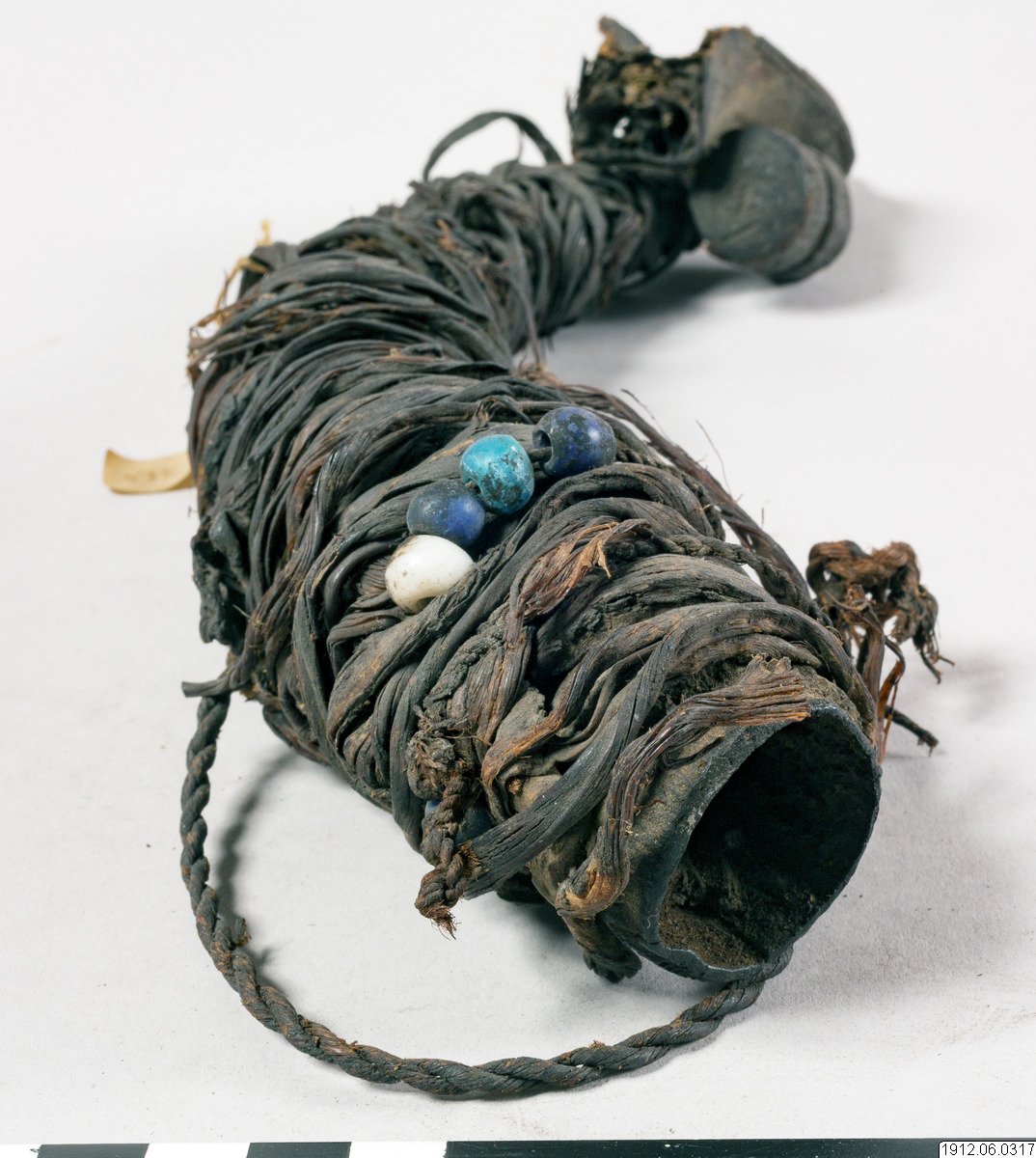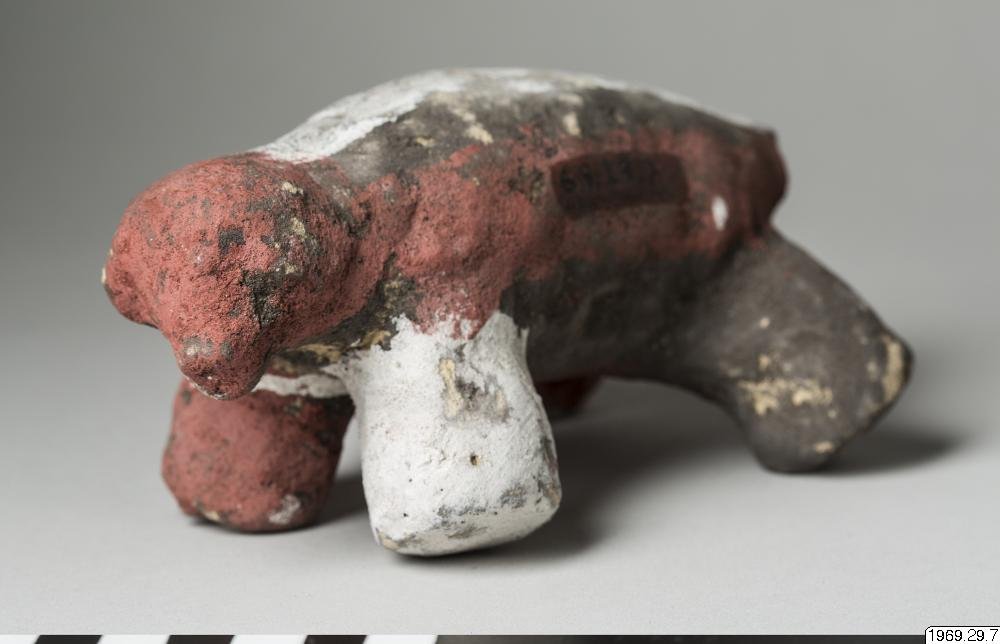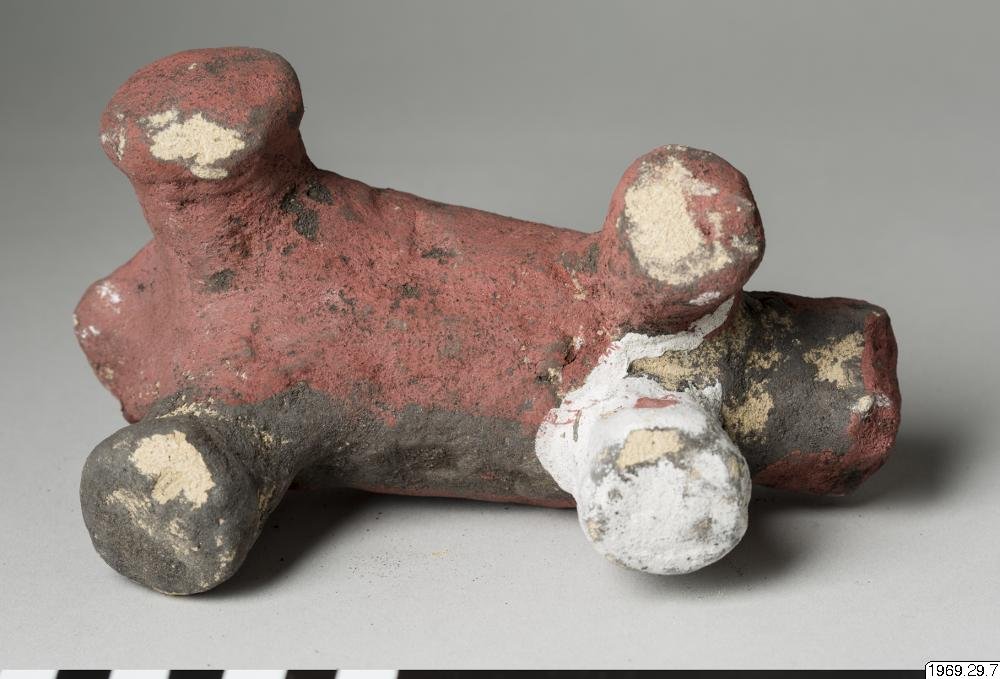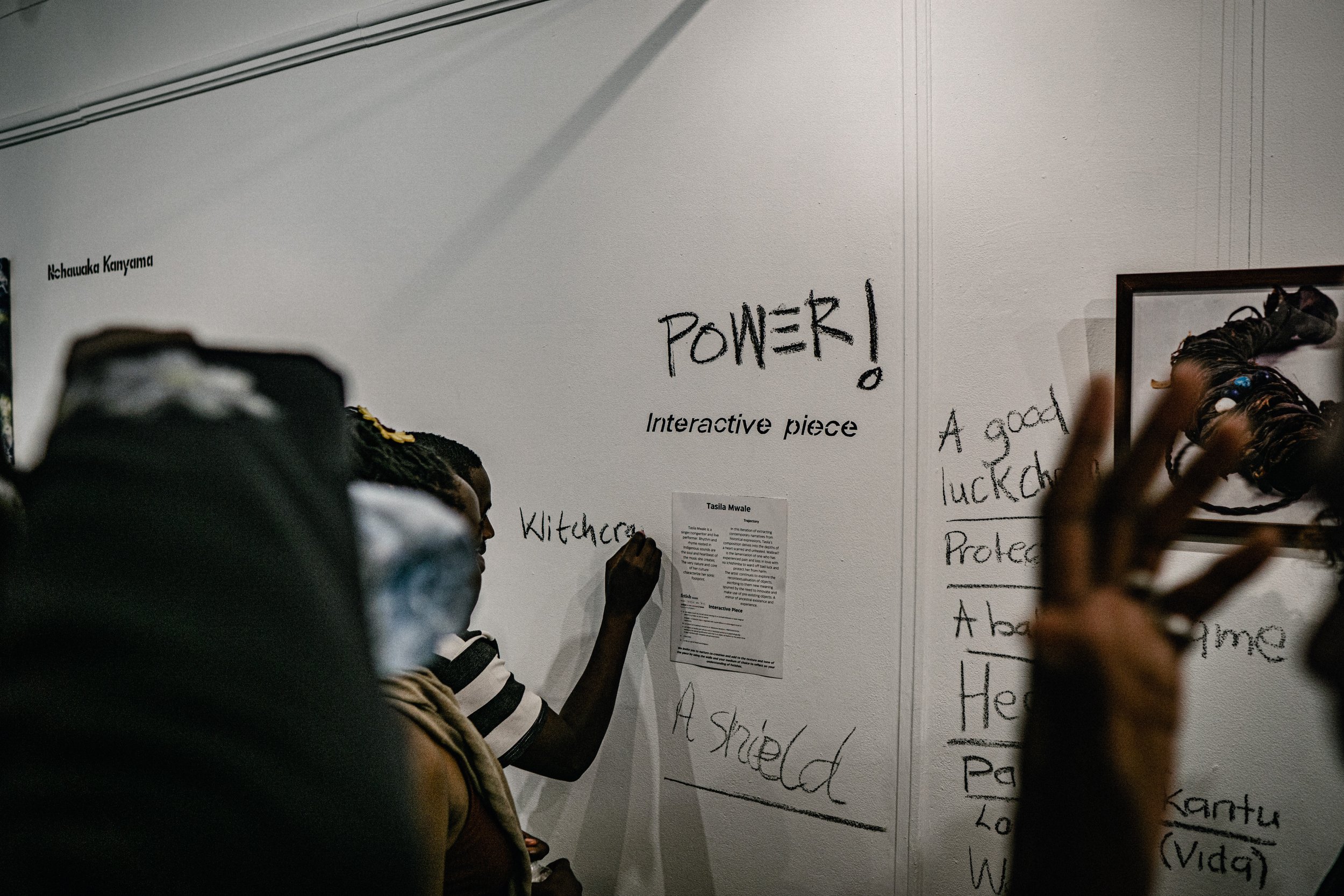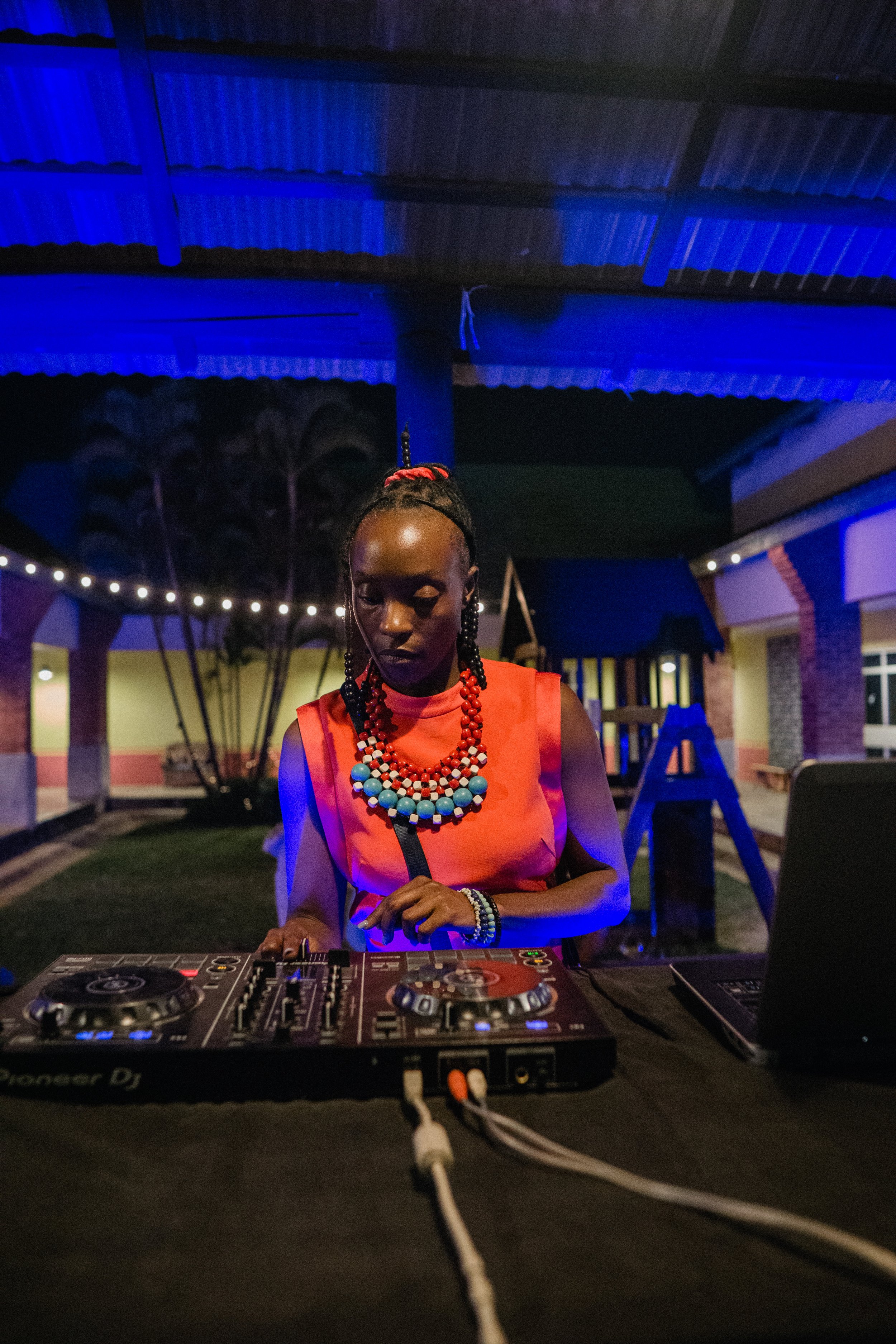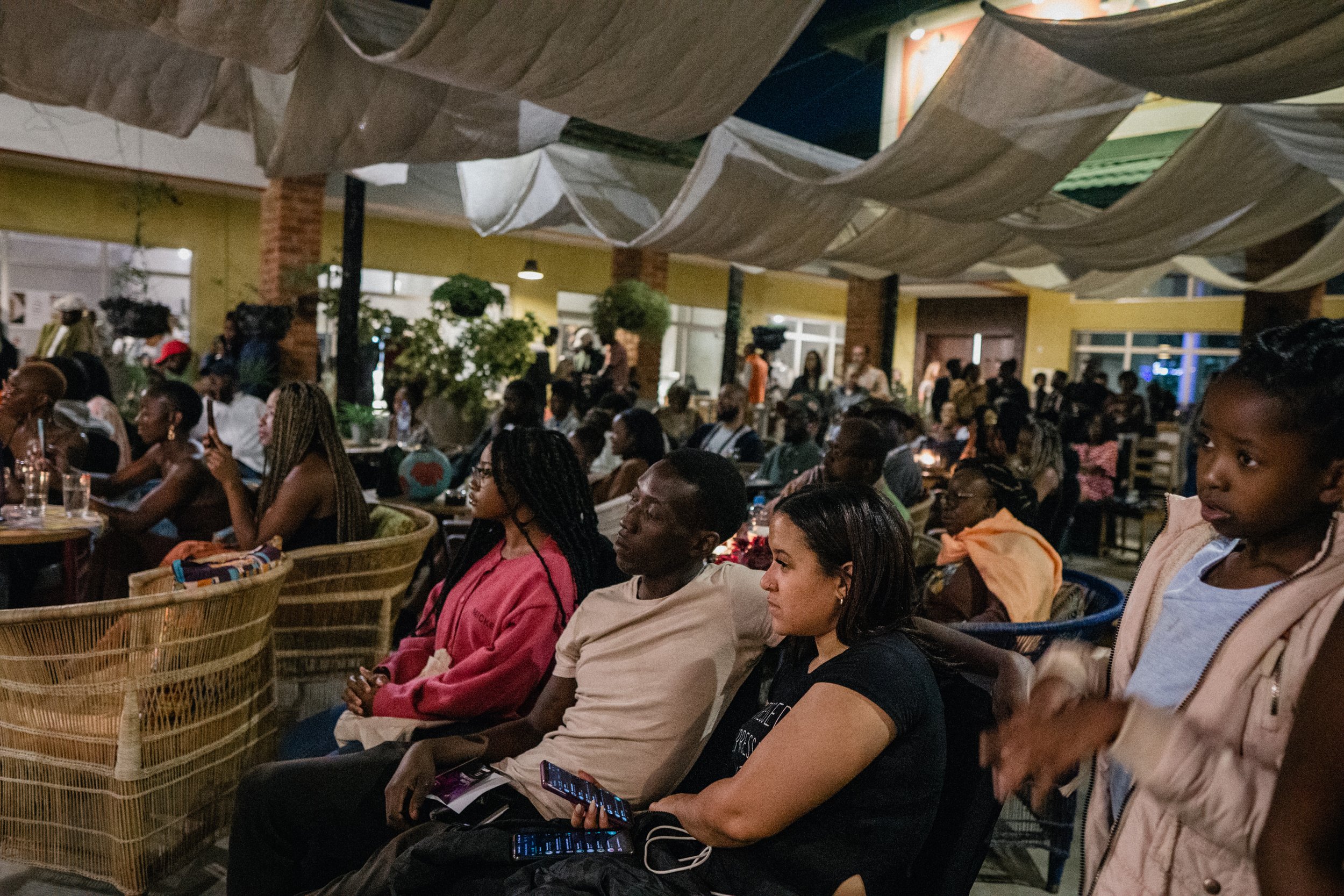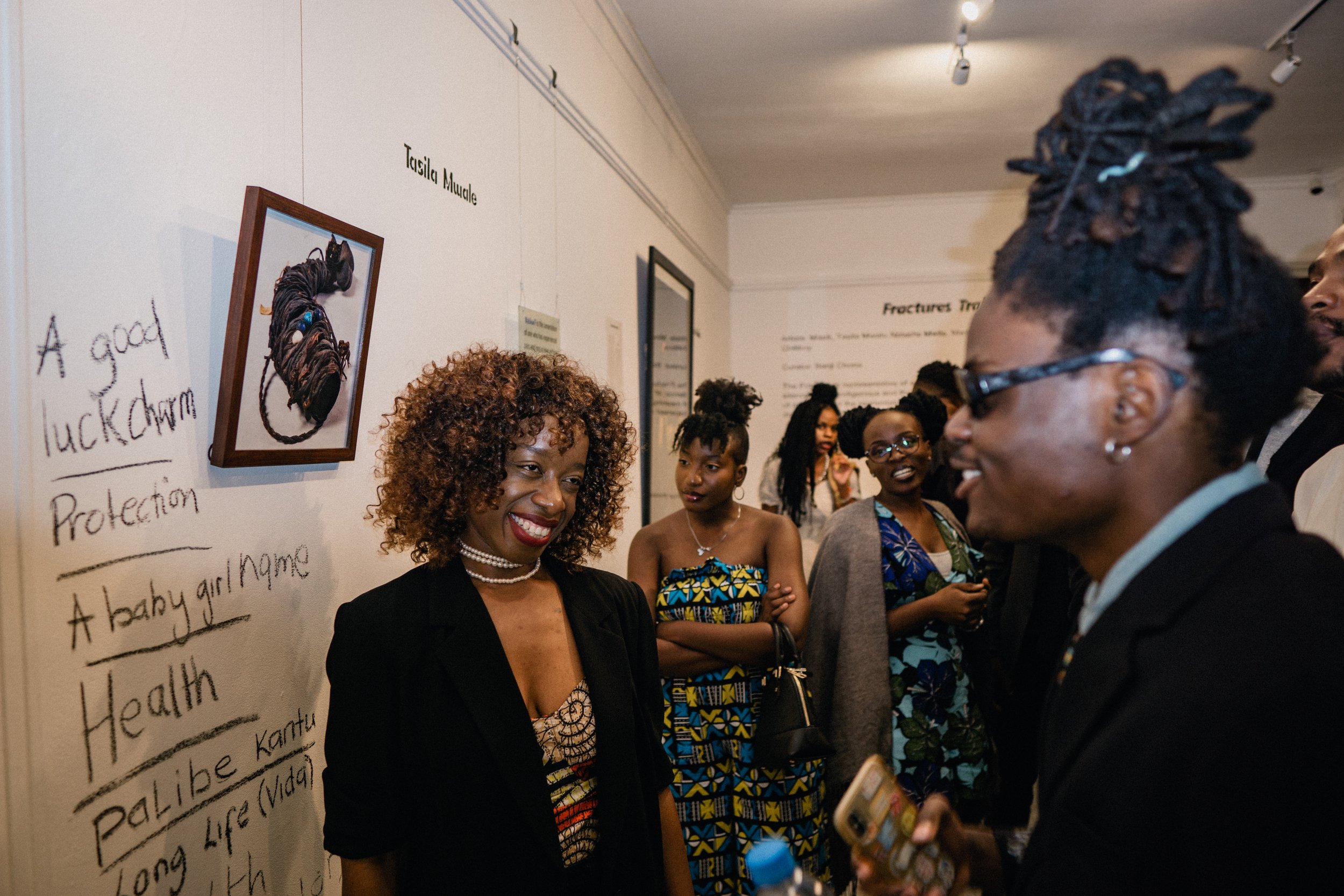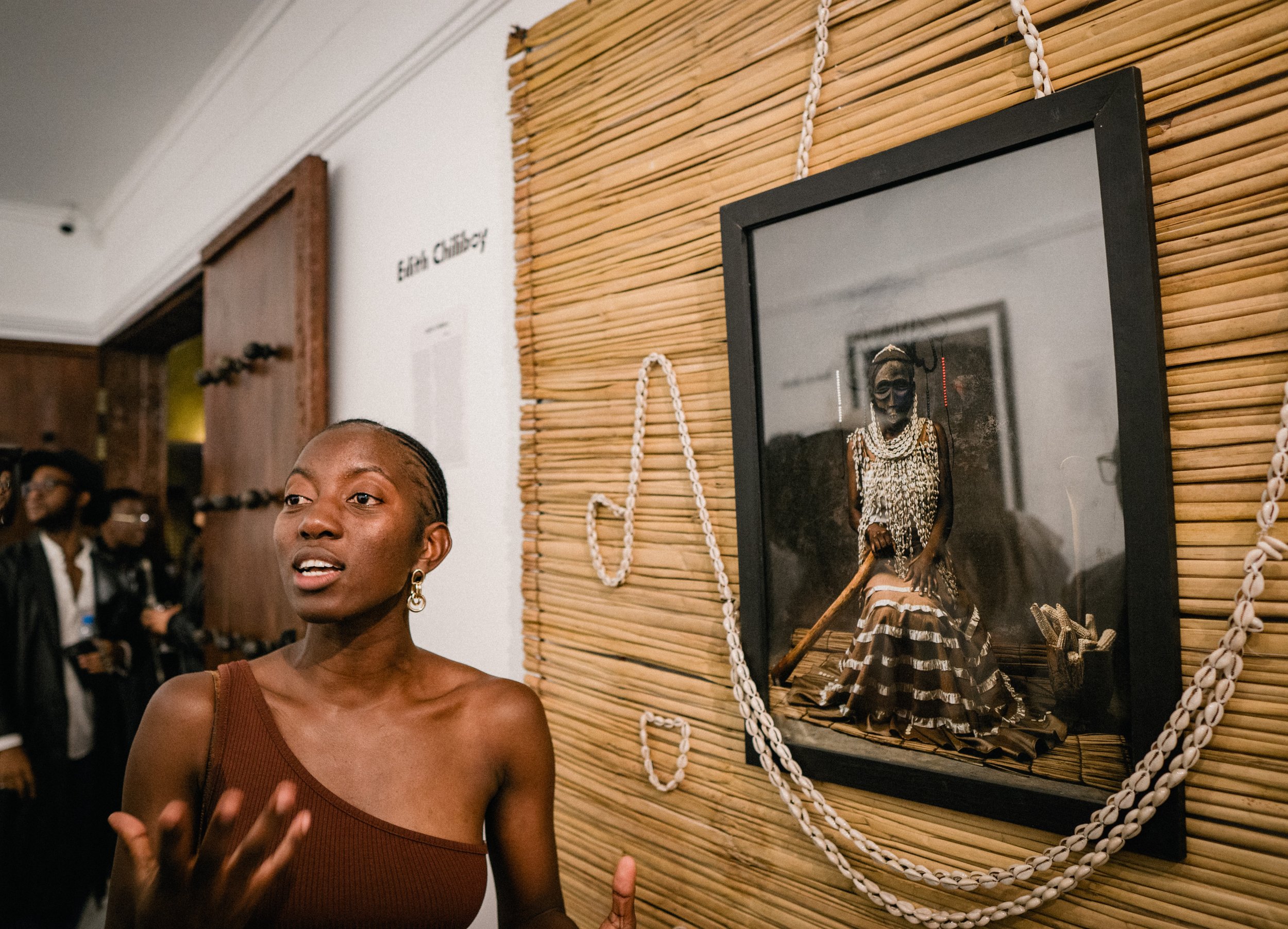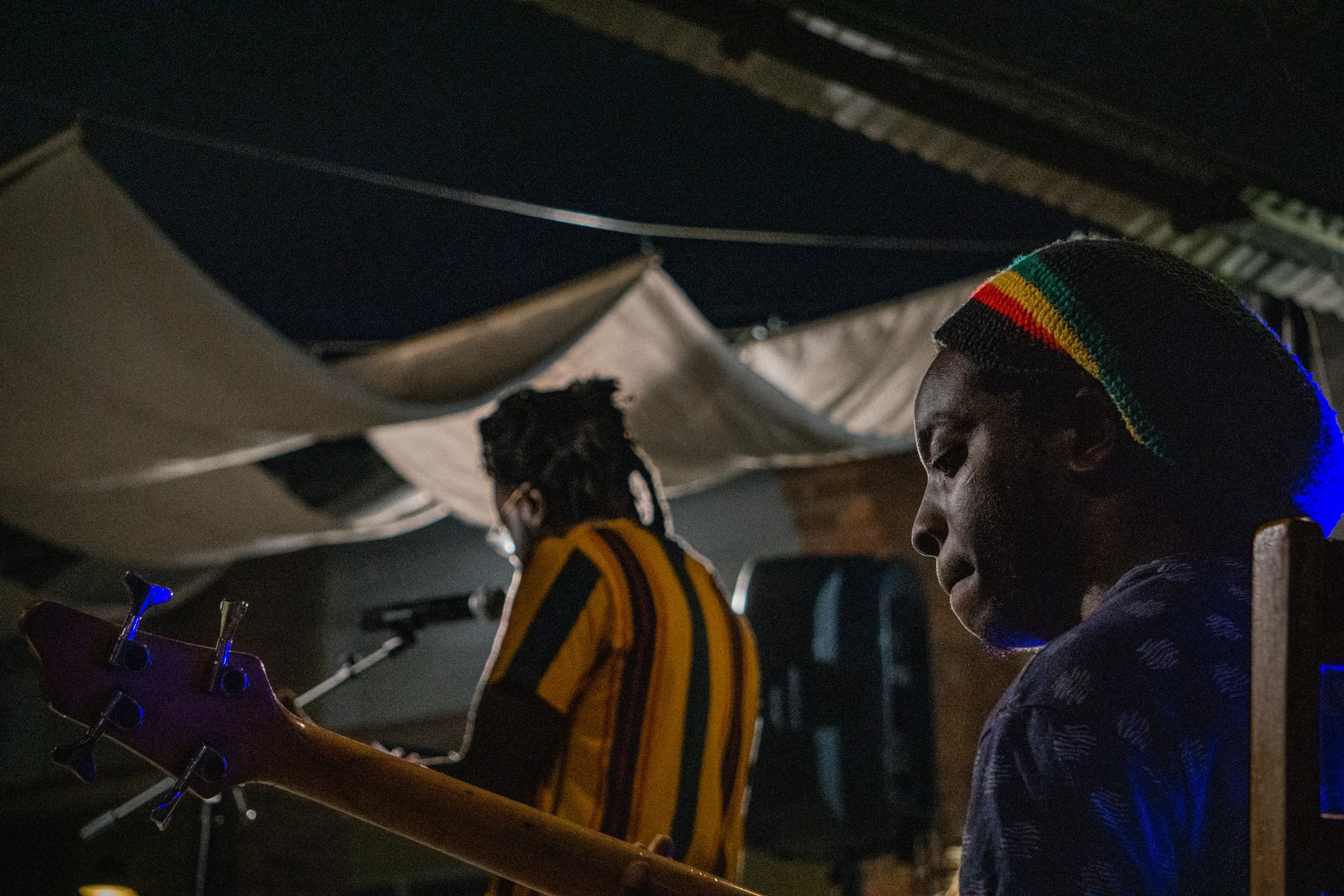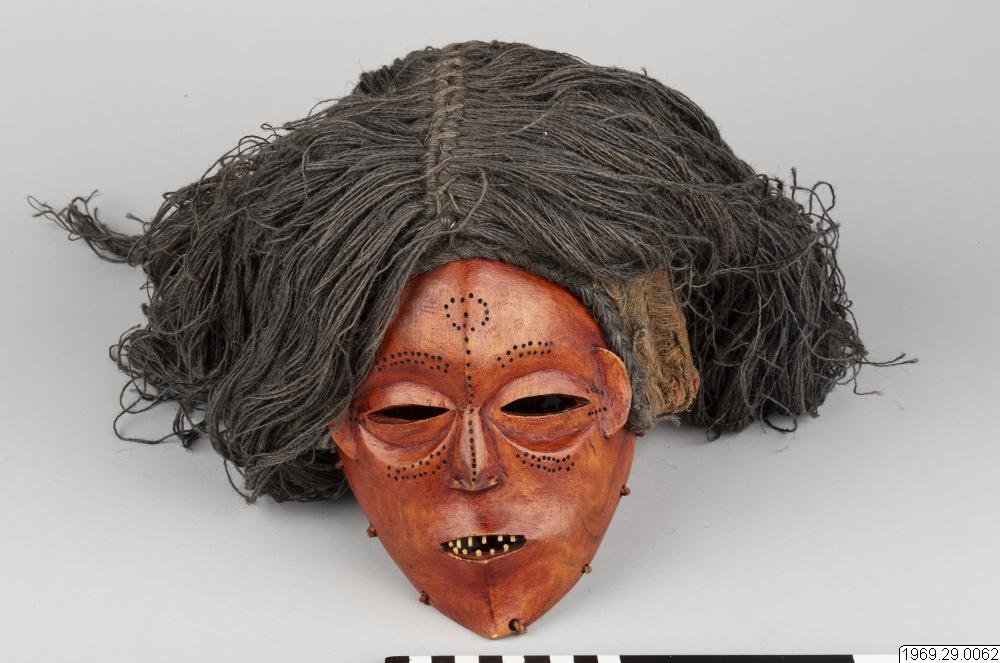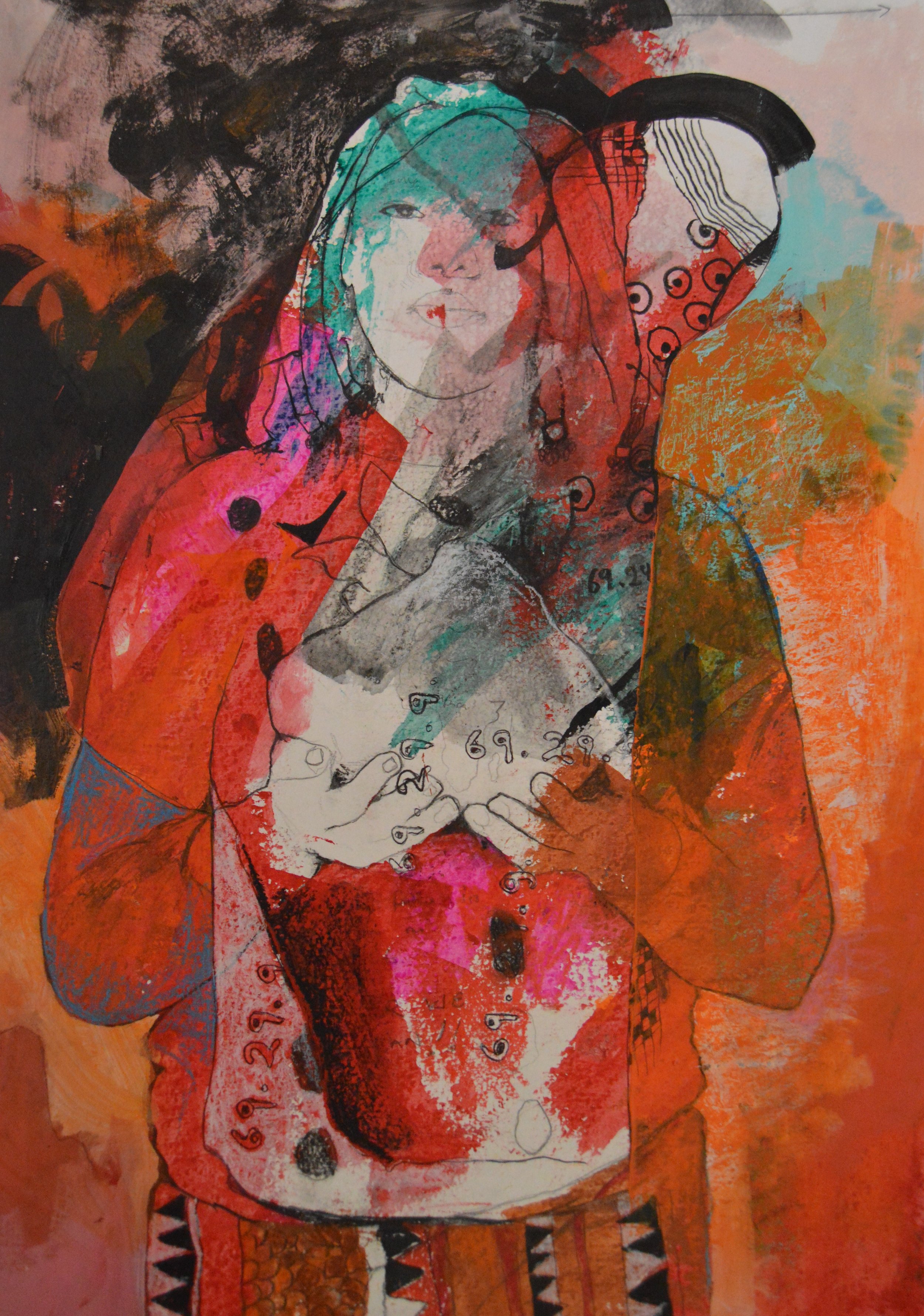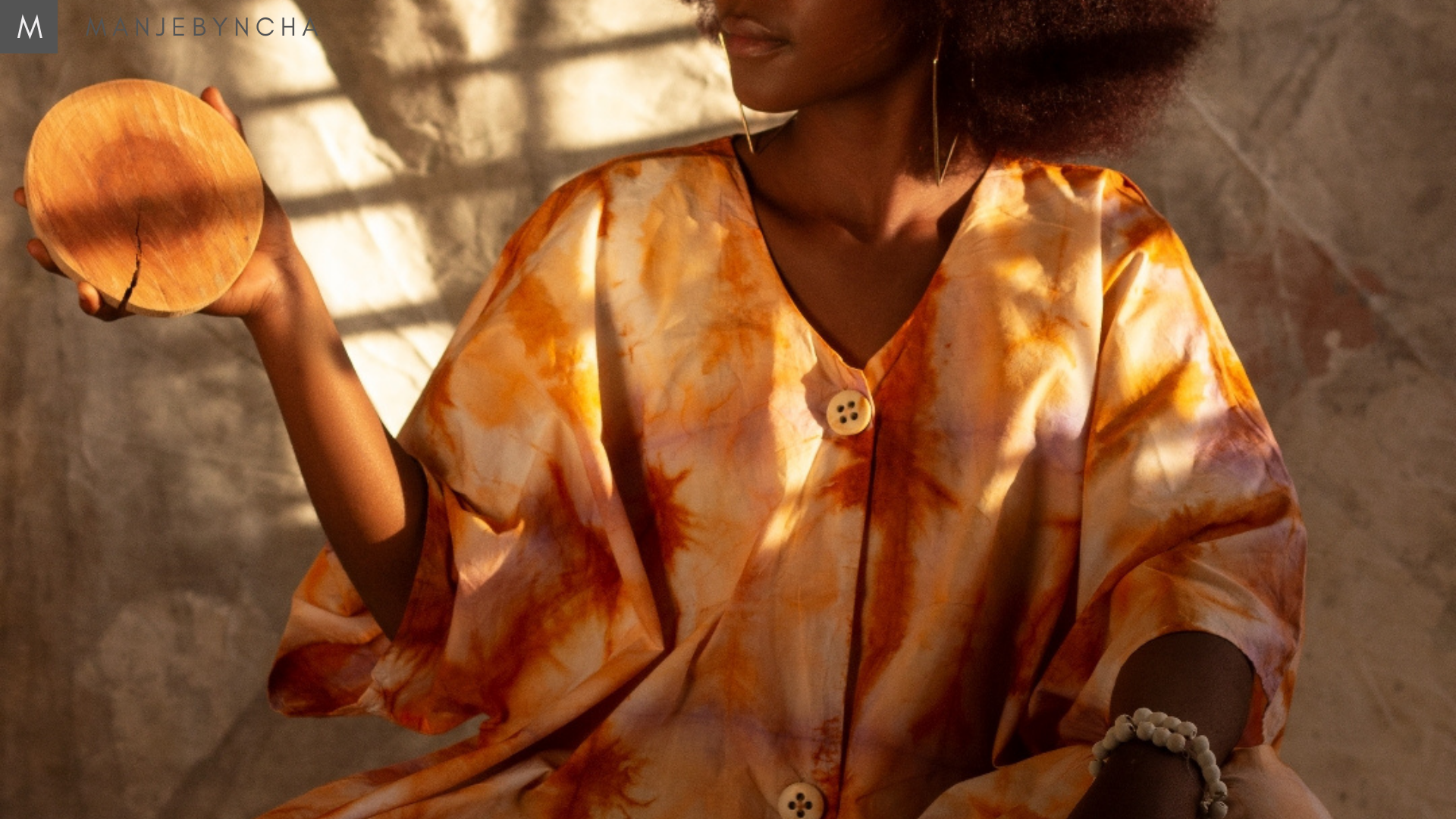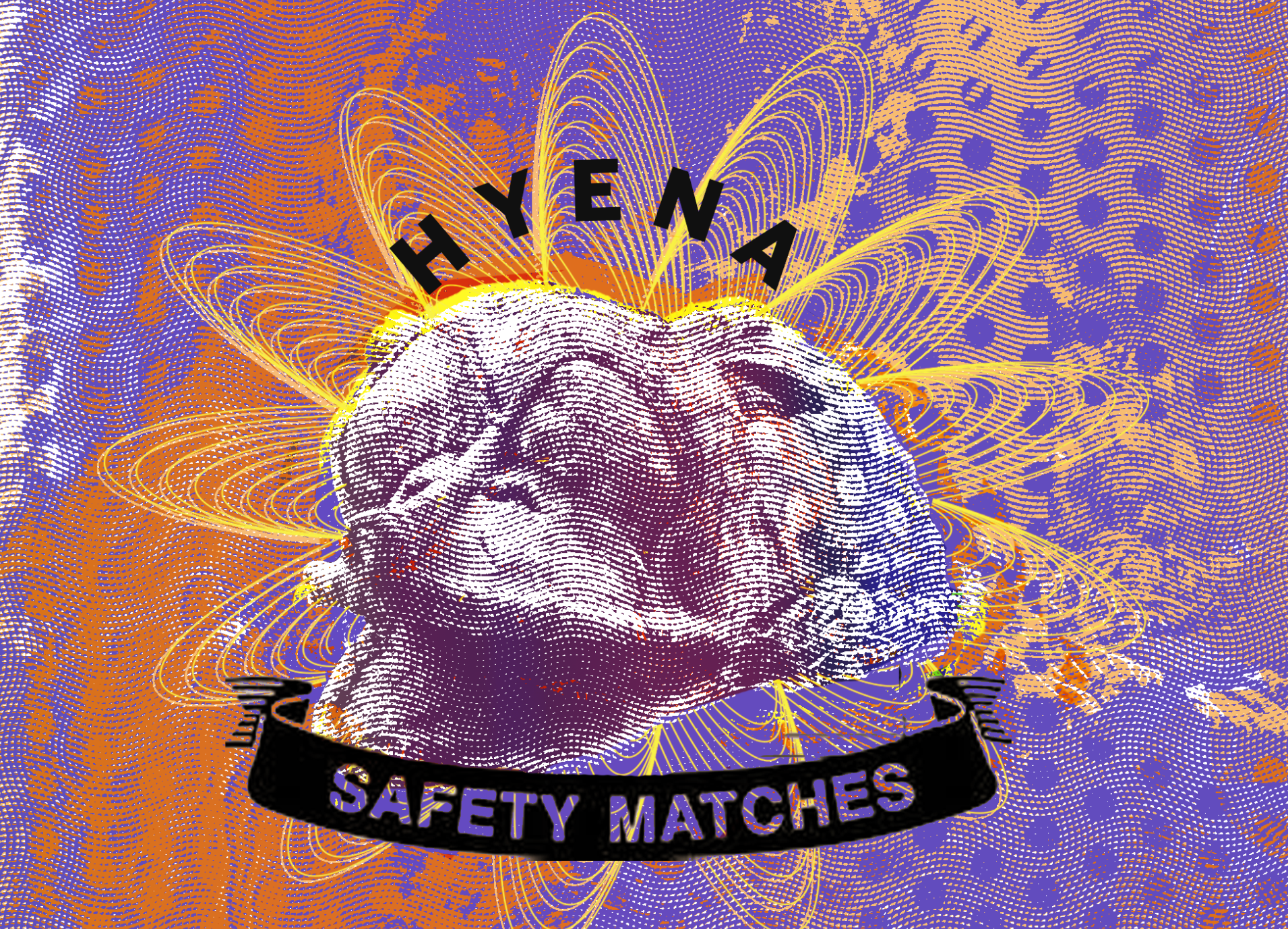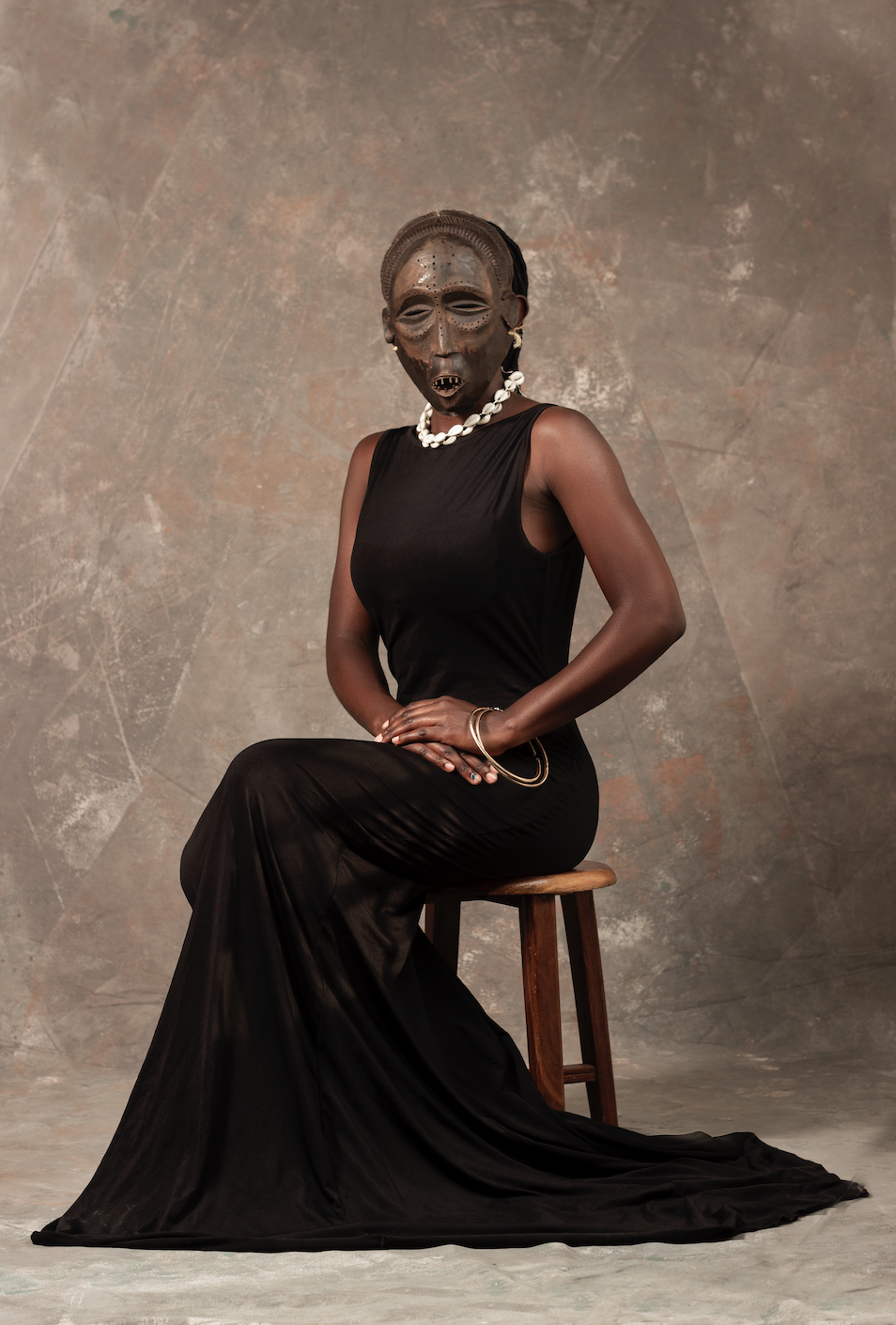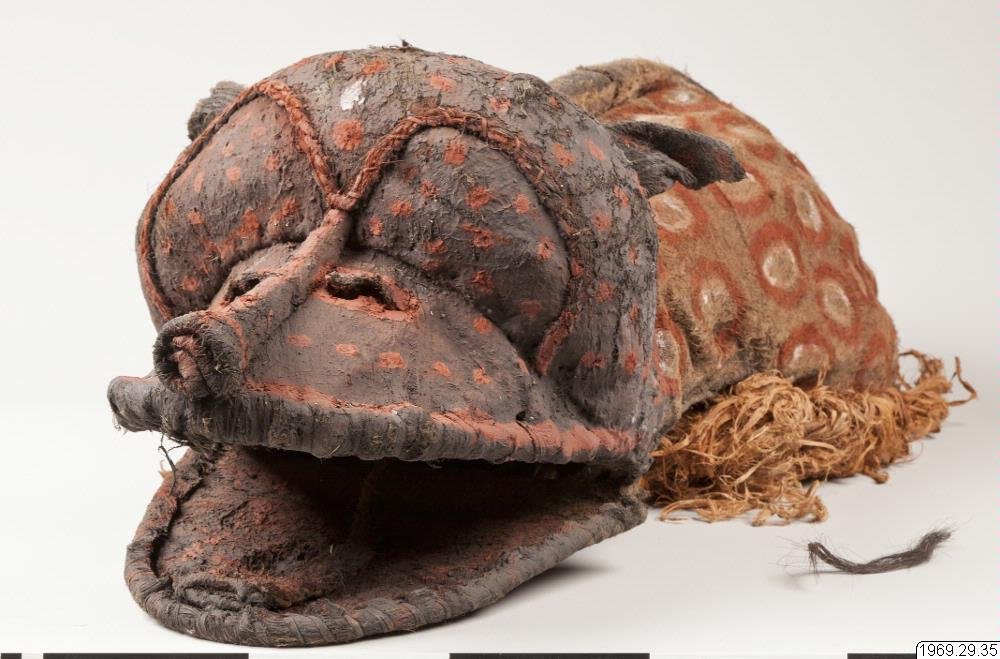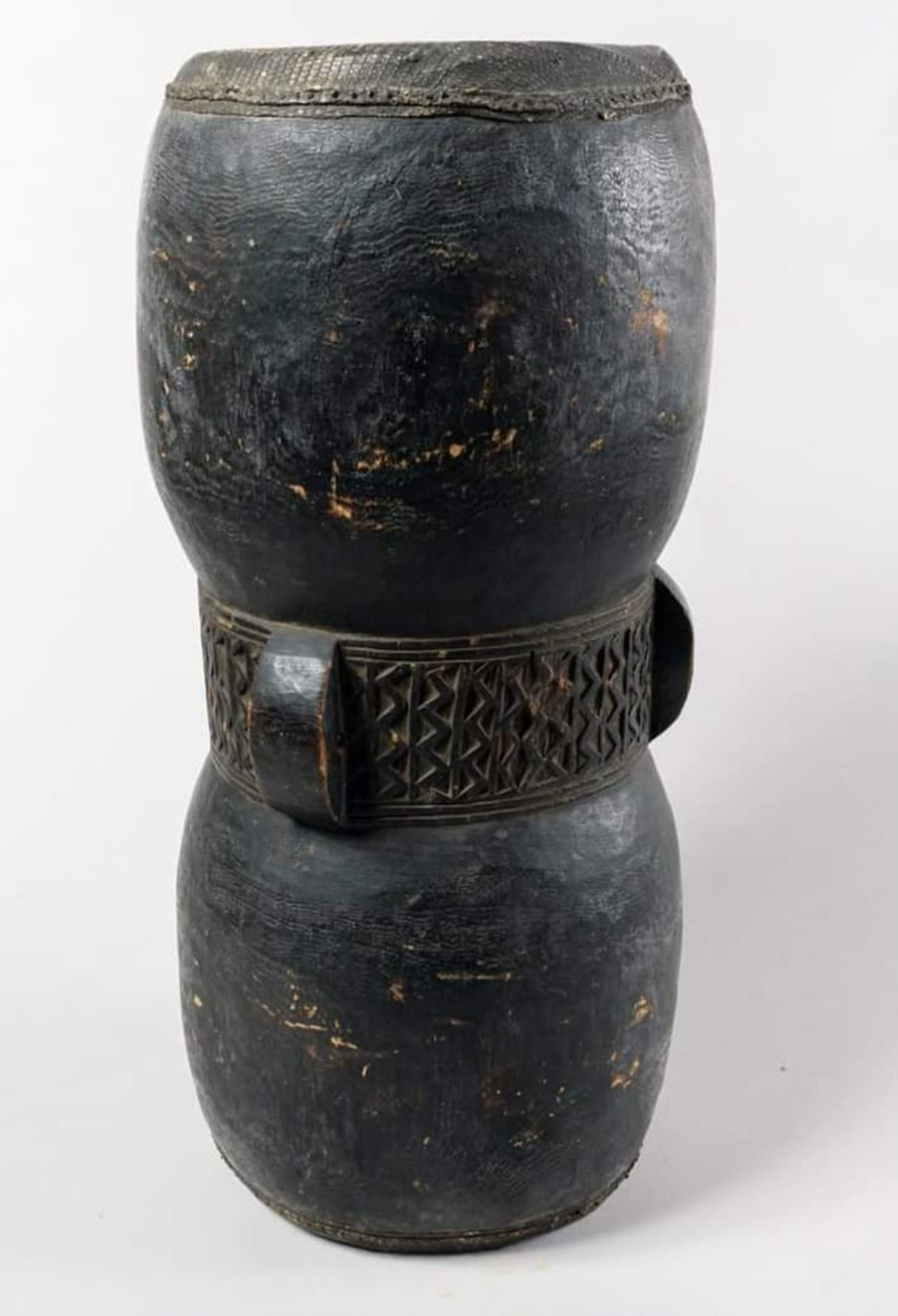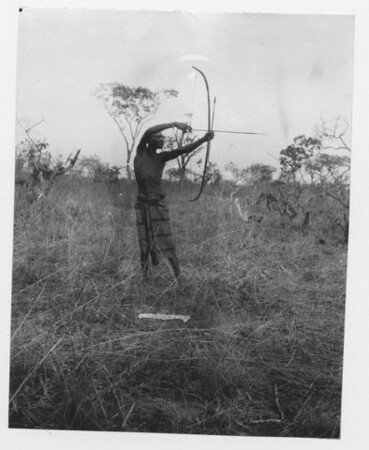Fractures
Fractures is the collective name for a series of roundtables, symposiums, workshops and exhibitions (physical and virtual) curated by Banji Chona for The Women’s History Museum. The gatherings are dedicated to the examination of the palpable tension experienced between the historical archive and contemporary living histories. This nomadic series of interventions explores cross sections, patterns and grooves, melodies and poetry; the result of reimagined and alchemised histories, objects and subjects and mark makers within the context of Contemporary Zambian Art.
The first iterations of Fractures were a series of exhibitions and workshops in collaboration with the Alliance Française de Lusaka. Held in March and May of 2023, the showcase featured the work of young artists Mwamba Chikwemba, Edith Chiliboy, Hannah Mwenzi Siliya, Masili, Nchawaka and Natasha Mwila. The artists, who are all based in Lusaka, have been a part of the many microcosms of this rolling project which began as Fabricated Stories, a research and production residency based on the re-working of Indigenous Zambian histories inscribed in objects and photographs found in the Swedish Museum of World Culture.
These objects, conduits of cultural histories have been digitally repatriated through the collaborative Shared Histories Digital Repository. A collection of over 1000 photographs, documents, objects and artefacts with their provenance in Zambia.
The exhibitions and contained processes of extraction took form of aesthetic, sonic and textured representations on the dialogue between historical and contemporary Fractures. A dialogue centred around the inqury into ancestral knowledges and technologies being housed in glass boxes within various Eurocentric museums and institutional archives across the globe.
They are maps of possible futures. A series of artful protests. Projections of the possibilities of healing data gaps and cultural wounds through artistic creation.
Curatorial statement
The Critical Language of Intervention illuminates the artistic endeavors of three Zambian women who fill in the gaps and silences in historical archives by integrating self-fashioned artistic and political languages into the postcolonial narrative. These creative expressions serve as acts of inscription, marking their presence in the collective consciousness and actively contributing to a reimagined Zambian historiography. Their artistry dares to challenge the norms, inviting the artist to shape the very fabric of Zambian history. The creation of a critical Zambian historiography allows for a polyphony of narratives to take root and be awarded value within existing realities and imaginations. The exhibition sculpts realms anew, beckoning forth a symphony of voices to echo through the archives and mythologies of postcolonial lore.
The curatorial approach is based on journeying through multi disciplinary artworks that foreground the construction of fresh textual, telluric, and textile languages, alongside counter-archives developed by artists that counterpose the often violent undercurrents prevalent in mainstream Zambian historical accounts. It is a resistance to conventional documentation practices. Transcending mere visual representation, embodying a deeper engagement with ancestral legacies and contemporary realities. The artists' meticulous processes are highlighted, shedding light on the transformative journey from abstract thoughts to tangible creations, underscoring the significance of materiality and contextual relevance in their practices. Process is a forgotten fundamental or ritual in the alchemising of thoughts into objects and pieces of work. By reimagining ancestral pasts and living histories, the exhibition is bringing attention to the importance of process, materiality, and context in the creation of meaningful and impactful art.
A selection of pre-existing works delve into the realm of critical resistance languages.
Within this space, the audience is beckoned to witness the resistance, to bear witness to the juxtaposition of divergent histories. Materials sourced from Western archives will be displayed within the exhibition in order to initiate a dialogue that navigates the divergent historical narratives and cultural identities, thereby centering the discourse on an inclusive and multifaceted archive.
As the artists' visions entwine with occidental echoes, a dialogue emerges - an attempt at bridging the chasm between past and present, between memory and truth? Through this communion of art and history, a richer, more inclusive understanding of Zambia's intricate tapestry unfurls, inviting all to partake in its boundless depths.
Through the thought-provoking artwork, a path is forged towards a more inclusive and diverse narrative of the country's history. A history that is dedicated to centering artists’ creations, self-composed artistic and political languages as challenging the roles of artists and the arts as actively contributing to the reshaping of Zambian historiography.
There is a shared curatorial and artistic commitment to developing new languages and counter-archives that fostering a more nuanced understanding of Zambia's intricate past, present and future.
CURATOR
WOMEN’S HISTORY MUSEUM ZAMBIA
exhibition events
About IMPAC
The iMPAC festival is an extension of the Open Window University’s profile, which endeavours to create initiatives whereby the University links with creative arts institutions and industry bodies within Africa and the globe, to exchange ideas, share practices, and engage with the Zambian arts community at large. Furthermore, we have recently established The Research Institute at the Open Window University, and are launching our research space through an academic symposium that will run concurrently with the arts festival. The 2024 iMPAC Arts Festival investigates Intersections in Music, Performance, Art & Cinema and welcomes interdisciplinary experiments and explorations, while the 2024 iMPAC Symposium will investigate the role of the Creative and Expressive Arts in Therapy, Education, Professional Practice, Community and African Culture.
VR Exhibition
Trajectories
25.05.23 - 1.06.23
Image Gallery
Fractures
9.03.23 - 20.05.23
Image Gallery


